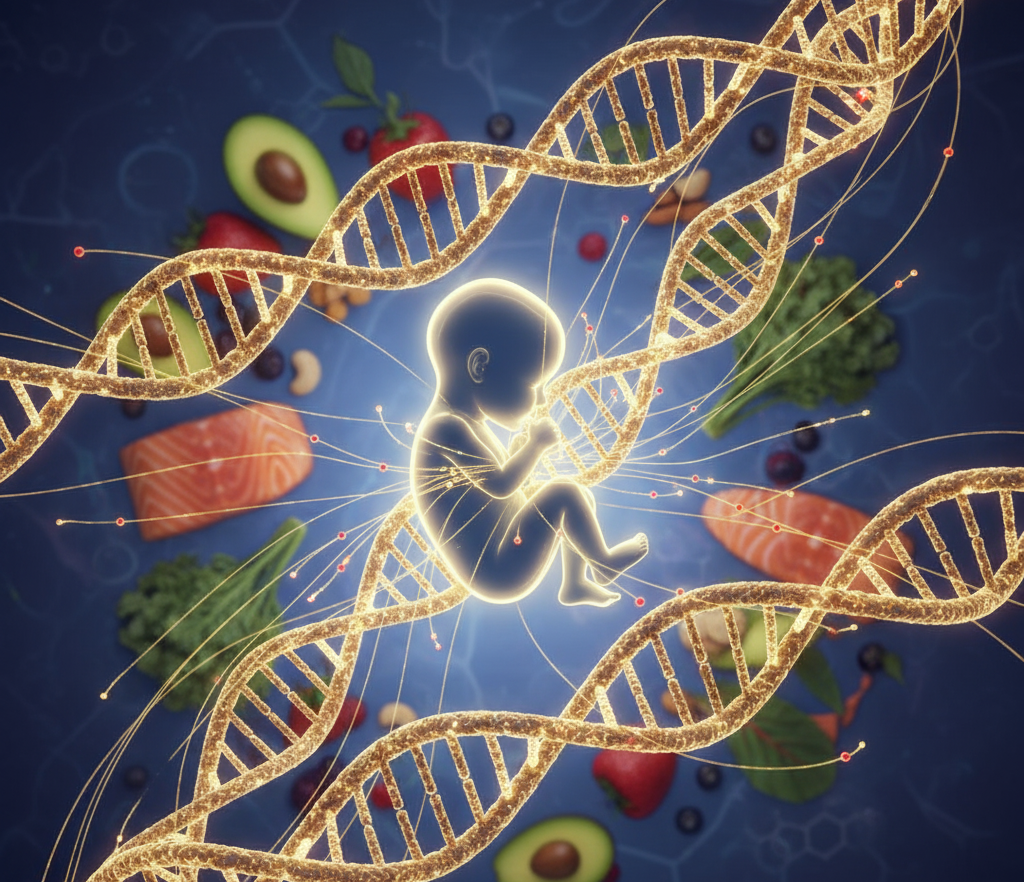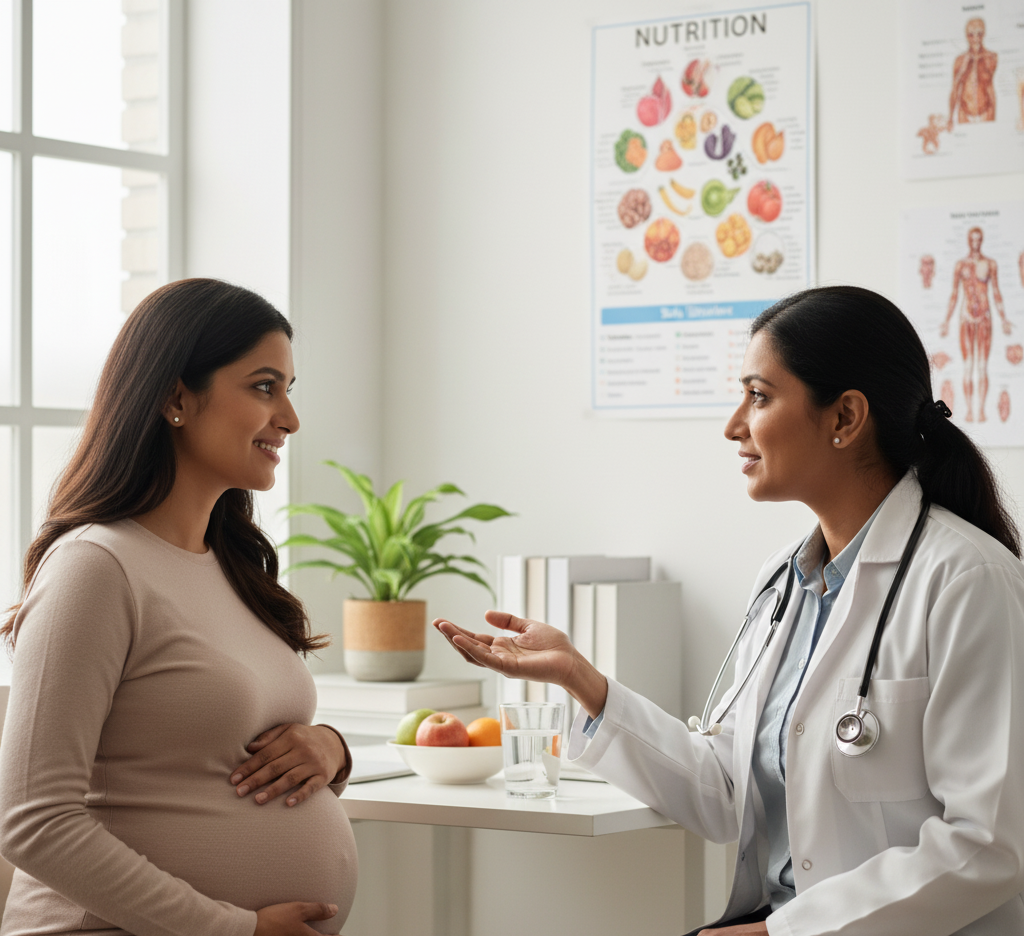Eating Peanuts While Pregnant May Influence How a Child’s Genes Respond to Breastfeeding
Discover how eating peanuts during pregnancy may influence your baby’s genes and response to breastfeeding. Learn about pregnancy nutrition, peanut safety, and allergy prevention for expecting mothers in India.

A mother’s diet during pregnancy plays a crucial role in shaping her baby’s health and development. Recent studies suggest that eating peanuts while pregnant may have a deeper influence than we once thought—potentially affecting how a child’s genes respond to breastfeeding. This fascinating link between pregnancy nutrition and peanuts in pregnancy opens up new discussions about genetics, immunity, and food allergies in infants.
In this blog, we’ll explore how maternal diet influences gene expression, the benefits and risks of peanut consumption during pregnancy, and how Indian mothers can make safe and informed dietary choices.
Pregnancy is not just about providing nourishment—it’s about programming a baby’s health for life. Every bite a mother takes can influence fetal gene expression, immunity, and long-term health outcomes. This concept, known as epigenetics, explains how certain foods can turn genes on or off without changing the DNA sequence itself.
Peanuts, being rich in healthy fats, protein, vitamins, and antioxidants, are an excellent part of a balanced pregnancy diet. But emerging research shows that they might also influence how an infant’s genes respond to breast milk components.
Recent genetic and nutritional studies indicate that when pregnant women consume peanuts, certain peanut-derived proteins and fatty acids may interact with the developing fetus’s DNA. These subtle epigenetic changes might later affect how the baby’s genes respond to immune-boosting compounds in breast milk.
Breast milk contains over 200 bioactive components that shape the baby’s gut health and immune system. If the baby’s genes are primed (or sensitized) by prenatal exposure to peanuts, it may enhance or alter these responses.
In simple terms: what a mother eats before and during breastfeeding could influence how her child digests and benefits from breast milk.
ALSO READ: Doctors Urge Younger Women To Know Their Risk As Breast Cancer Rates Rise Under 40

Peanuts are more than just a snack—they’re a nutritional powerhouse.
Protein for fetal tissue development, healthy fats for brain growth, folate to prevent neural tube defects, vitamin E and niacin for cell repair, and magnesium for muscle and nerve health—all make peanuts a valuable part of the pregnancy diet. Including moderate amounts of peanuts may support overall pregnancy health and ensure balanced nutrition.
Benefits of Eating Peanuts While Pregnant:
- Supports fetal brain development: Omega-6 fatty acids aid brain and nerve formation.
- Reduces risk of allergy: Some studies suggest that early exposure to peanuts (through the mother’s diet) may reduce peanut allergies in children.
- Improves maternal energy levels: Peanuts provide lasting energy and prevent fatigue.
- Enhances gut health: Natural fiber supports digestion and reduces constipation.
- Promotes immune strength: Antioxidants help strengthen the body’s defense mechanisms.
In India, many families still worry that eating peanuts during pregnancy may cause allergies in babies. However, research says otherwise. Unless you are personally allergic, it is generally safe to eat them during pregnancy.
Precautions:
- Always consume fresh, unprocessed peanuts.
- Avoid salted or fried varieties.
- Limit to a small handful (around 30 grams) per day.
- Stop immediately if you feel itchy, dizzy, or develop swelling.
Consult your gynaecologist or general physician before making any dietary changes, especially if you have a family history of allergies.

Researchers believe that peanut proteins can affect infant immunity by teaching the immune system to tolerate certain allergens. This may explain why children of mothers who ate peanuts during pregnancy are less likely to develop peanut allergies later. This immune tolerance might also improve how a baby responds to protective compounds in breast milk.
For most pregnant women in India, a safe peanut intake would be:
- 1 small handful (25–30 grams) per day
- Prefer roasted or boiled peanuts over fried
- Combine with fruits or salads for better digestion
Avoid peanuts if you:
- Have a peanut allergy or strong family history of one
- Experience severe nausea or vomiting after consumption
- Are advised by your doctor to follow a specific allergy-elimination diet
In such cases, your doctor may suggest alternatives like almonds, soybeans, or chickpeas.
Tips for Safe Peanut Consumption:
- Choose unsalted, natural peanuts.
- Avoid peanut butter with added sugar or oils.
- Combine peanuts with vitamin C-rich foods to enhance absorption.
- Store peanuts in airtight containers to prevent fungal growth.
See a doctor if you notice:
- Rashes or itching after eating peanuts
- Swelling in lips, eyes, or tongue
- Breathing difficulty or stomach cramps
Buying high-quality peanuts and eating them in moderation helps minimize risks like allergic reactions or contamination.
Lifestyle Tips for Expecting Mothers:
- Eat balanced meals.
- Stay hydrated.
- Avoid raw or undercooked foods.
- Sleep well.
- Engage in light exercises or prenatal yoga.
Eating peanuts while pregnant can be safe, nutritious, and beneficial for your baby’s genetic and immune development. With proper precautions and doctor guidance, peanuts can be part of a healthy pregnancy nutrition plan.
Looking for a trusted doctor near you? Book your appointment easily on Quickobook.com – India’s growing healthcare platform for convenient, reliable consultations.
Stay healthy, stay informed — only with Quickobook!










Comments (0)
No comments yet. Be the first to share your thoughts!
Leave a Comment